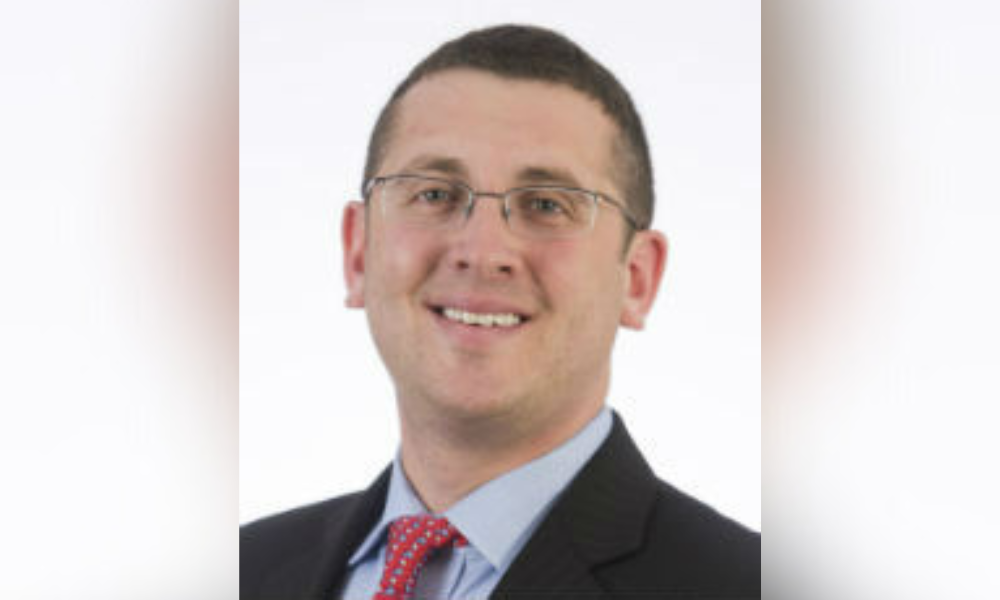It was a $5k bonus check that prompted him to switch majors pronto

Jarret Coleman (pictured) never intended to enter the mortgage industry, setting his sights on being a meteorologist.
A mortgage loan officer at US Bank, Coleman took time to chat with Mortgage Professional America recently to discuss his interesting career trajectory. “I went to college to be a meteorologist,” he said. “That was my passion. I loved the weather – still love the weather.”
It was 2006, and Coleman was a sophomore in college – happily studying meteorology. His path would cross with a mortgage broker – one of the top brokers in the country, he says – who hired him as an assistant.
“I think he made like $300,000 in two-and-a-half days, something outrageous like that,” he recalled. “And he gave me a $5,000 check as a bonus, a thank you, which was all the money in the world to me back then. I think within a matter of a few days, I ended up switching my major from meteorology to financial accounting.”
He would soon learn that a lot of his meteorology credits would not transfer to his newfound passion of finance – including physics and advanced calculus he had already endured. “Fast forward I graduated officially in 2009,” he said. “I ended up having to stay an extra year to graduate.”
How did the Great Recession affect people?
Shortly after graduating, the Great Recession would rear its ugly head.
“Then 2008 happened, and everyone got out of the business – including him,” he said of the mortgage broker who introduced him to the career. “I was left with a decision to make. Do I follow the corporate ladder like a lot of my friends, or do I follow through with mortgages and give it a go?”
He opted to try his hand at it. “I got really lucky with my timing because back then I didn’t have any responsibilities, I didn’t have a house, and I didn’t have a family at the time. So it was easier to take that leap. Everyone was leaving the industry as I was entering. It worked out for me very well because I didn’t have nearly as much competition and I was new to the industry, which gave me an opportunity to learn.”
Also beneficial was an implausible upshot of the Great Recession: “It leveled the playing field,” Coleman said. “We all started from the ground up.”
What happens when you get out of your comfort zone?
The lessons of those early days continue to guide his career, he suggested. “It was a lot of learning and humbling,” he said. “I’ve never been told ‘no’ or ignored as much in my life.” For example, he would email real estate agents constantly only to have his missives ignored, he said. He finally received a response from one after more than a year’s worth of emails from him: “One responded to me after 15 months of emailing her to tell me to stop emailing her. ‘Come meet with me,’ she said. I still work with her to this day.”
Another thing he had to learn was to overcome his fears while stepping outside of his comfort zone. “When I started in this industry, I had to ask the loan officer to leave the room when I made a call to a client because I was too scared to speak to a client in front of him,” he recalled. “Everyone says you’re born with sales ability, and I’m the perfect example that is not the case.”
Read more: How to become a mortgage loan officer in 10 steps
He credits that early loan officer with providing him with life lessons, he said. “He would take me out of my comfort zone in order to grow by sending me to luncheons, dinner events. I hated every minute of it. But after time, you become amenable to them. I still do them, and feel so much better once they’re completed. The anxiety leading up to them is sometimes challenging, but those are really the challenges I deal with day to day, even now, when I battle my inner demons with anxiety to get to become a bigger and better person in the back end.”
Now a family man with a six-month-old and four-year-old at home, Coleman is happily ensconced in the mortgage industry with no regrets at having left meteorology behind. “I’m very family-oriented,” he said. “When I’m not working, I like being with my family. And I like that about this job.”



